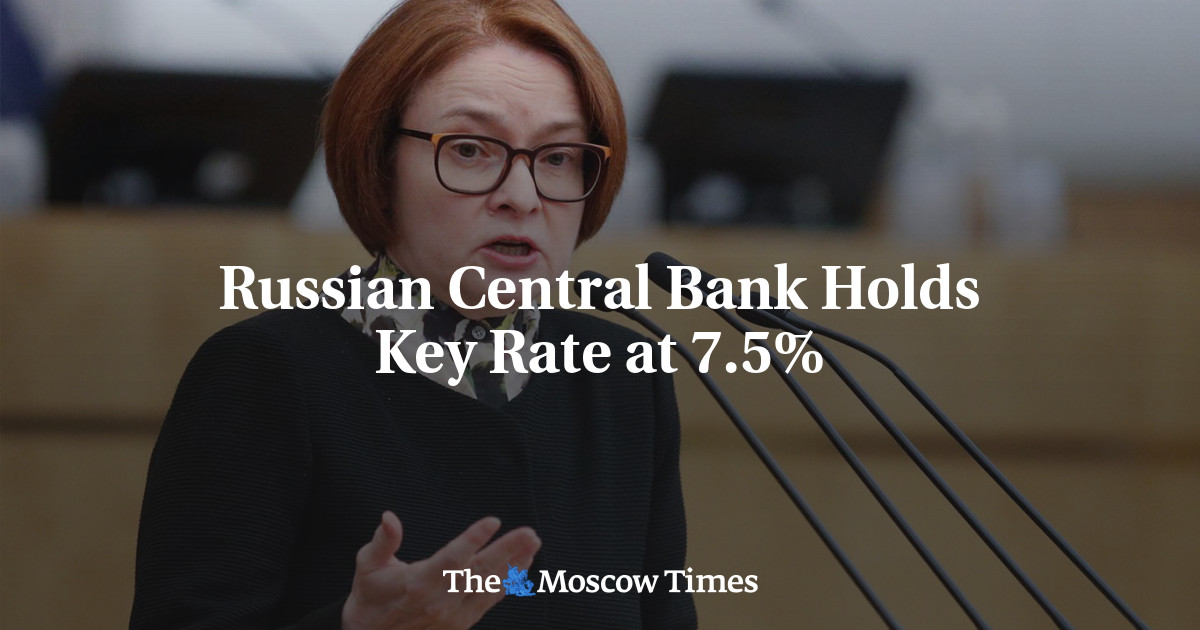
Russia’s Central Bank decided Friday to hold its key interest rate at 7.5% for the fifth time in a row, noting that inflationary expectations remained high.
“Over the medium-term, the balance of risks has not changed significantly and is still biased towards pro-inflationary ones,” the Bank said in a statement.
Still, the Russian economy is growing faster than previous forecasts had suggested, the Bank said, reflecting an increase in domestic demand that has also helped boost business sentiment.
At the same time, some price growth has been held back by the economy’s ongoing adaptation to external trade and financial restrictions caused by Western sanctions and the Russian government’s efforts to control the fallout.
The Bank’s updated forecasts put annual inflation in 2023 between 4.5 and 6.5%, while in 2024 it is expected to settle at the target rate of 4% — a significant decrease from forecasts made back in February.
Russia’s annual inflation rate in 2022 was 11.9%.
In its Friday statement, the Central Bank also noted that structural limitations in the country’s labor market continue to limit the expansion of domestic production, as demographic trends, mobilization and huge waves of emigration have led to labor shortages across multiple industries.
“Proinflationary risks from the labor market remain. Significant labor shortages in certain industries can lead to lagging growth in labor productivity behind growth in real wages,” said the bank.
Ahead of the Central Bank’s last monetary meeting back in February, Bloomberg reported that the Kremlin was pressuring the Bank to be “more upbeat” about the Russian economy amid the invasion of Ukraine and Western sanctions.
According to Bloomberg’s sources, Russian officials reportedly wanted the Bank to send “a clearer hint” that interest rates might come down later this year.
Last year, Russia’s Central Bank hiked the key rate to an unprecedented 20% in a bid to tame economic chaos prompted by the invasion of Ukraine and ensuing Western sanctions.